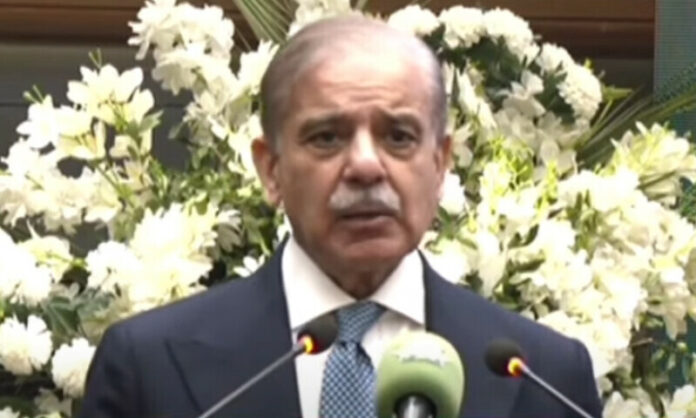Prime Minister Muhammad Shehbaz Sharif on Tuesday directed the immediate preparation of a comprehensive action plan aimed at reforming Pakistan’s agriculture sector, enhancing productivity, and supporting climate-resilient practices across the country.
Chairing a high-level review meeting on the performance of the agriculture sector and the progress of ongoing reforms, the prime minister reiterated that “improving agricultural productivity, value addition, and increasing exports of agricultural products are top priorities of the government.”
He instructed the relevant authorities to formulate both short- and long-term strategies covering a wide array of interventions — including the adoption of modern agricultural machinery, availability of quality seeds, geographical planning of crops, and easy access to loans for farmers.
To increase per-acre crop yield, Prime Minister Shehbaz called for the revitalization of agricultural research centers, directing that their performance be significantly enhanced. He further emphasized the importance of public-private partnerships in fostering advanced agricultural research, enabling faster innovation and application of modern techniques.
Recognizing the global shift towards digital and data-driven agriculture, the prime minister said the government should actively engage international experts to ensure effective integration of artificial intelligence and cutting-edge technologies into Pakistan’s farming ecosystem.
A major focus of the meeting was on value addition and agro-industrial development. The prime minister instructed that a detailed action plan be developed for small and medium-sized agro-industries, which would enable farmers and entrepreneurs to convert raw produce into export-ready products, thereby strengthening Pakistan’s agricultural exports.
To promote the cultivation of high-value and climate-suitable crops, the prime minister directed that comprehensive guidance and support be extended to farmers across the country. He highlighted the need to make Pakistan self-sufficient in food security and emphasized that consultations with farmers and stakeholders must form the foundation of all policy decisions.
The prime minister also called for improved coordination with provincial governments to ensure the successful implementation of reforms and policies at the grassroots level. In response to the increasing challenges posed by climate change, he directed authorities to assist farmers in adopting climate-resistant seeds and modern farming methods to safeguard crop yields.
Noting the changing rainfall patterns and other climate shifts, the premier directed that a detailed consultation with provincial governments, especially in Sindh and Balochistan, be carried out to formulate a comprehensive plan for cotton cultivation in new, climatically suitable areas.
He also stressed the need for research and policy planning to incorporate biofuels into the national energy mix, positioning agriculture as a contributor to sustainable energy solutions.
During the session, the participants were briefed on the production trends of major Rabi and Kharif crops, the challenges currently faced by farmers, and the proposed future roadmap. Officials also presented updates on reform implementation and detailed the impact of climate change on the agriculture sector.
Concluding the meeting, Prime Minister Shehbaz Sharif reiterated his directive that a comprehensive action plan for further agricultural reforms be submitted without delay.
The session was attended by Federal Minister for National Food Security Rana Tanveer Hussain, along with a team of agriculture experts and senior government officials.




